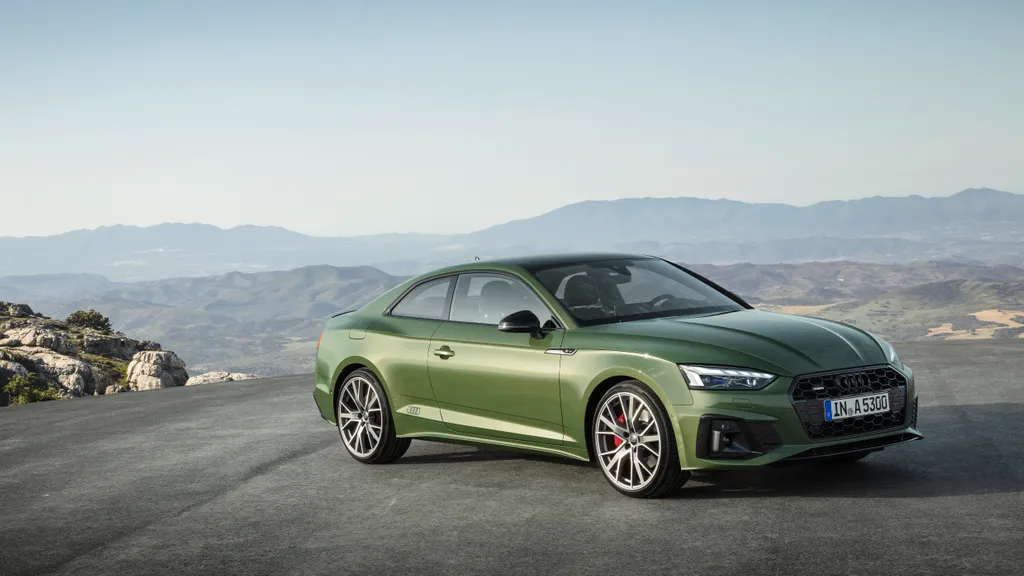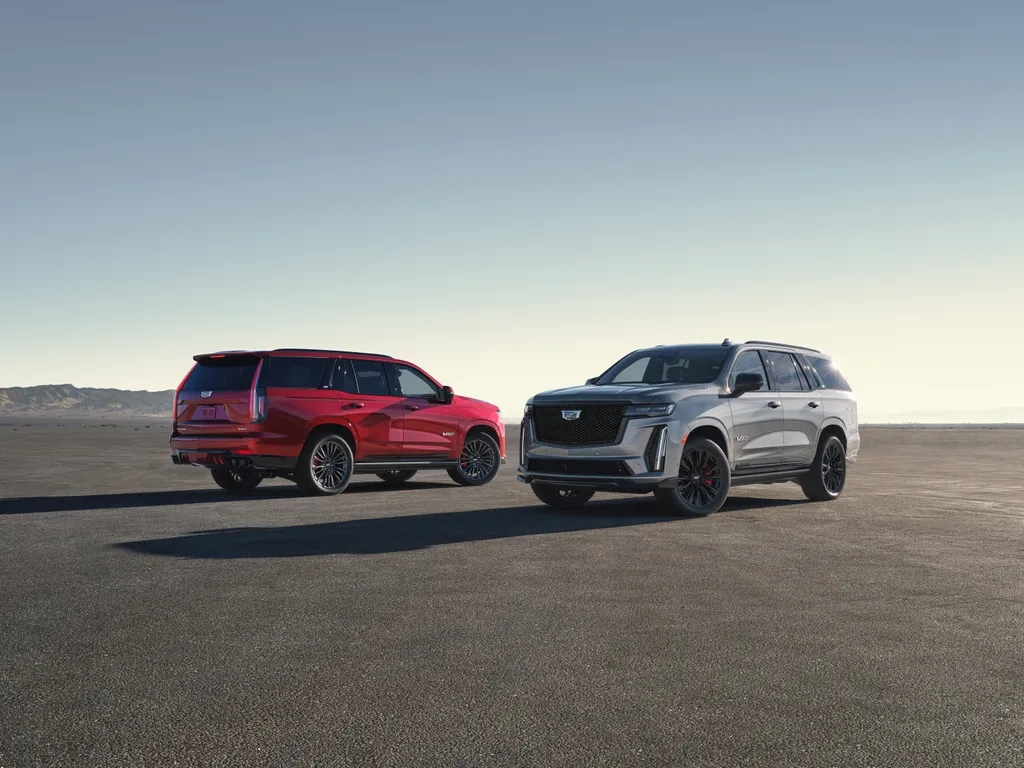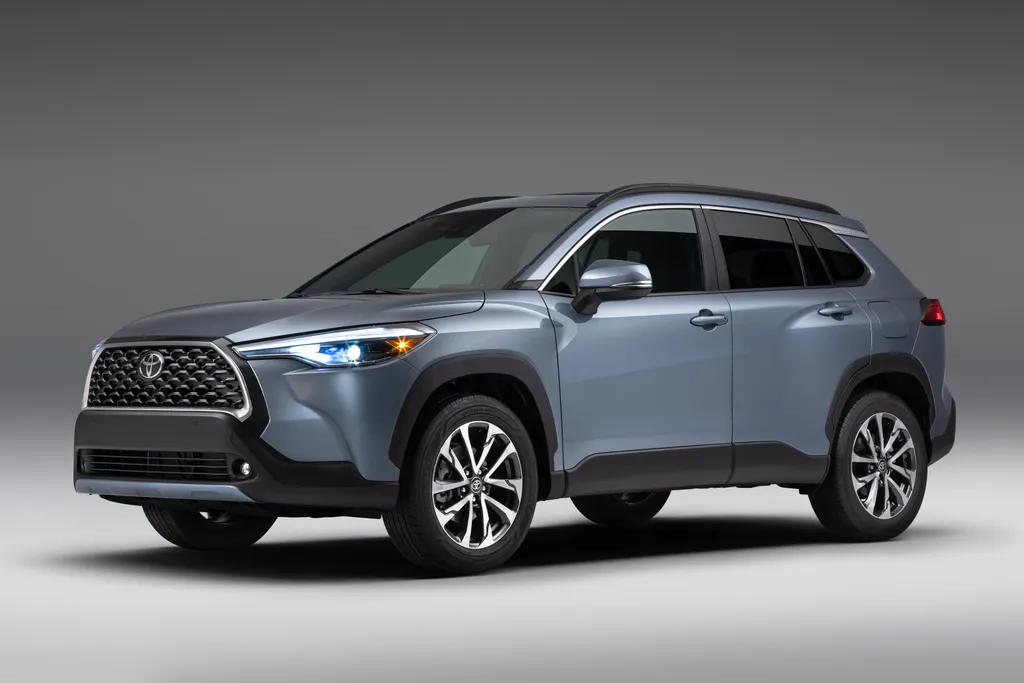- The price of a new luxury car can easily reach (or exceed) six figures.
- Shopping around and picking the right time to buy can make a big difference.
- If you’re buying used, consider buying from a private seller via an owner’s club.
If you’re planning on spending your retirement years going on road trips or visiting distant friends and family, having a luxury car such as an Audi S5 Coupe ($54,900) or a BMW 5 Series ($54,200) could make those drives much more fun. Luxury cars don’t have to break the bank, either. If you’re willing to shop around and wait for the right deal, you can get a car that’s a dream to drive for a price that won’t cause sleepless nights. Knowing what to look for in a luxury car, and how to haggle with a dealer, can make all the difference. Here’s everything you need to know.
Why Buy a Luxury Car?
Luxury cars don’t just look nice. They’re generally more comfortable, enjoyable to drive, and often have better safety features than their more mundane counterparts. If you’ve spent most of your life driving a non-luxury brand, you might be surprised at the differences. Little things like leather interior, a heated steering wheel, and extra in-car entertainment features can make a huge difference.
Most luxury cars come with ultra-comfortable seating, with proper lumbar support. That means even the longest interstate journeys will be easier to handle. For many seniors, that upgrade alone is worth more than any status conferred by having a luxury badge on your car’s bonnet.
 Source: Audi
Source: AudiKnow Your Budget Before You Go Shopping
The term “luxury car” actually covers a broad spectrum. The average price of a standard vehicle is around $40,000 when bought new. Luxury midsize sedans sit at around the $55,000 price point. The average cost of a full-size luxury sedan is around $100,000. You can also go higher, with brands like Porsche, Mercedes, or BMW. Alternatively, you can sometimes find cheaper luxury models like Acura or Lexus.
When shopping for any luxury car, start with figuring how much you can afford to spend. That will save you plenty of time researching your potential new ride. It will also help you figure out whether you should be looking at a brand new vehicle, or a gently used one. Your budget may also factor into how many optional features you plan to spring for. No matter the size of your budget, it’s easier to negotiate when you know how much money you have to play with.
 Shutterstock
ShutterstockLook for Good Deals Online
Researching your options online will help you get an idea of the market rate for the type of car you want. Kelley Blue Book provides a list of prices for both used and new cars. This will give you an idea of the manufacturer’s suggested retail price, the price dealers actually pay for a car, and how much you can expect to pay for a high-quality used vehicle.
Armed with this knowledge, you can start looking online. Check out dealership websites, eBay, Facebook Marketplace, and other similar online classified sites. You’ll quickly gain an understanding of what cars are available in your local area.
 Shutterstock
ShutterstockBe Patient
If you’re happy to pay the market rate, you can get a new car fairly easy. If you’re on a tighter budget, you might need to wait for the right deal to come along. This means checking online regularly. You’ll potentially have to view a lot of cars until you find one that meets your specifications.
Be patient. Don’t rush into getting something that doesn’t tick all the right boxes. As a senior, you likely don’t need to commute to work every day. You can afford to wait a bit for your dream car.
 Shutterstock
ShutterstockBe Ready To Put Some Work Into The Car
A used car may need some work to bring it up to scratch. You may need to replace the clutch or timing belt. Maybe it’s due for a new set of tires or the previous owner was a bit neglectful. All that maintenance work may seem expensive at first glace. However, it might only be a small cost compared to the overall lower price of a good used car.
So, consider looking at slightly less-than-perfect cars. Then have a trustworthy garage complete the work required to make them handle like new again. If the car is a few years old, you may find that investing in some work helps increase the future resale value too.
 Shutterstock
ShutterstockBe Willing to Walk Away From a Bad Deal
This advice applies to all cars — budget, luxury, and everything in between. It’s particularly applicable to cars at the higher end of the market, however. A lot of dealerships know that luxury cars are highly desirable. They may try to sell ones that are substandard, hoping that you won’t notice any potential problems.
Make sure you test drive any vehicle you’re interested in buying. In fact, multiple test drives are totally fine. Ask to get the car inspected by an independent mechanic. If the seller balks on these requests — or if you’re otherwise not fully sold on anything else about the car — it’s time to change plans. Either attempt to negotiate a lower price to cover the necessary repairs or walk away. Just keep looking for a better deal.
 Shutterstock
ShutterstockBuy From An Owner’s Club (If Possible)
If possible, find the local owner’s club for the brand of luxury car you’re interested in. They often conduct private sales through the club. As a bonus, the type of person who joins an owner’s club is likely to be more interested in cars in general. That probably means they have been more proactive about properly maintaining them, so their car is more likely to be in a good condition.
In many cases, a seller will offer you a better price through an owner’s club than you’d be able to get through a dealership. Owner’s club members want their cars to go to a good home. Dealers just want to maximize their profits. By seeking out an owner’s club, you’ve already proven you’re taking the purchase seriously.
 Shutterstock
ShutterstockLook For Incentives From Dealers
Visit a few local dealers and ask them what they’re able to offer in terms of added extras or discounts. Don’t make a commitment to buy during your initial visit. Shop around and try to play dealers off against each other.
Consider making your visits in the last few days of the month, when salespeople may be scrambling to meet their quotas and be more willing to throw in some little extras if it will get them a sale. This strategy isn’t guaranteed to work, but it could help you get heated seats or a better sound system as part of your purchase.
 Shutterstock
ShutterstockHigh Mileage Cars Can Be a Great Deal
There are several factors that influence the cost of a luxury car. Age, mileage and features are all important. If you want the latest parking sensors, a luxurious interior and safety features, you want a car that’s as new as possible. Looking for a higher mileage used vehicle could save you a lot of money.
If the car has done a lot of highway miles, the distance it’s covered won’t have put as much strain on the engine as city driving miles would have. You can often find hidden gems that have been used regularly by a loving and careful owner.
 Shutterstock
ShutterstockConsider Which Extras You Really Want
When you’re buying a new luxury car, the salesperson will try to persuade you to add lots of extras and to take out a finance package through the dealership. It’s these areas where the dealers make most of their profit. Don’t let the salesperson upsell you a package that you don’t want, especially if they change the terms of the finance in the process.
You could end up paying thousands of dollars more in interest for a feature worth only a few hundred dollars. Know what you do and don’t want before you walk into the dealer, and pick the areas you’re willing to negotiate on too.
 Source: Cadillac
Source: CadillacBe Mindful of the Psychology of Luxury
There are several things that make luxury cars appealing, including:
- The feeling of exclusivity
- Build quality and reliability
- The customer experience
Think about each one of those and how it impacts you. It’s nice to feel like you’re part of a special “owners club,” and it’s nice to feel pampered when you’re in the showroom. However, neither of those things really make a difference to the long-term experience of owning the car. What matters is build quality and reliability.
So, when choosing a make and model to buy, focus on that. Rolls Royce and Toyota are known for reliability. BMWs, in contrast, require more maintenance. What would really make you happy in the long run?
 Source: Toyota
Source: ToyotaPick a Car You’ll Keep Long-Term
A good luxury car could last you many years, whether you buy used or new. So, look for one that you like and that has timeless appeal. If you take good care of it, it could hold its value well compared to some of the more disposable low-end cars on the market. Luxury cars are built to last both in terms of bodywork and engine.
Once you find a car you like and that you enjoy driving and are proud to park in your driveway, treat it well. As a proud member of a luxury car owner’s club, you’ll find that the joy of having a high-end car will never fade.
 Source: Porsche
Source: Porsche
